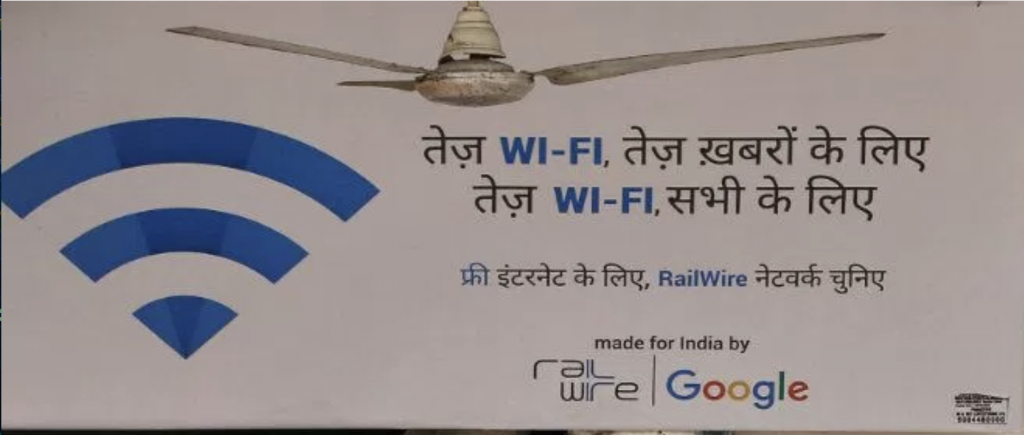Railtel-Google free railway station wifi using 49Gbps!
 Railtel (the telecom arm of Indian railways) is running free wifi hotspots across the country in collaboration with Google. It’s there since last two years and started with the MoU between Railtel and Google (news here) back in 2015. Fast forward to 2018 - the free wifi project railway stations seems to be doing quite well with so many users using it. The project covers 361 stations and is expected to reach it’s target of 400 stations soon. The IP network for the service is under the name “Mahataa Information India Private Limited” and originates IP pools from AS134426 - https://bgp.he.net/AS134426#_asinfo. It is a single homed network behind Railtel’s AS24186. https://qz.com/715143/googles-free-wifi-at-indian-railway-stations-is-better-than-most-of-the-countrys-paid-services/ I put an RTI to Railtel asking them about MoU details as well as bandwidth consumption for each state. In their reply, Railtel denied the request for MoU under the exemption from disclosure as well as NDAs they have with Google but they did share detailed of state wise bandwidth consumption.
Railtel (the telecom arm of Indian railways) is running free wifi hotspots across the country in collaboration with Google. It’s there since last two years and started with the MoU between Railtel and Google (news here) back in 2015. Fast forward to 2018 - the free wifi project railway stations seems to be doing quite well with so many users using it. The project covers 361 stations and is expected to reach it’s target of 400 stations soon. The IP network for the service is under the name “Mahataa Information India Private Limited” and originates IP pools from AS134426 - https://bgp.he.net/AS134426#_asinfo. It is a single homed network behind Railtel’s AS24186. https://qz.com/715143/googles-free-wifi-at-indian-railway-stations-is-better-than-most-of-the-countrys-paid-services/ I put an RTI to Railtel asking them about MoU details as well as bandwidth consumption for each state. In their reply, Railtel denied the request for MoU under the exemption from disclosure as well as NDAs they have with Google but they did share detailed of state wise bandwidth consumption. 
Some interesting points
- This data is peak bandwidth usage and not average bandwidth.
- Highest usage seems to be of Maharashtra which very likely is because of high usage in Mumbai.
- Second highest in Uttar Pradesh which isn’t surprising based on the size of the state.
- Rajasthan, as well as Punjab, seem quite low against their size.
- It seems to be mostly 0 for North East states - Arunachal Pradesh, Mizoram, Meghalaya, Manipur, Tripura & Sikkim. The only traffic is in Assam (450Mbps) and Nagaland (90Mbps). In Assam there are 5 active stations under the project and Nagaland there’s just one (Dimapur) station. 90Mbps usage for one station is interesting.
- Total bandwidth consumption of 49.68Gbps looks like a nice number. Hard to predict the cost of the bandwidth since a significant part of this would be local cached/peered traffic like Google, Facebook, Akamai, Amazon etc. My guess would be that 35% of the 49.68Gbps i.e ~ 17Gbps would be the IP transit expense part of it which would be much cheaper against the long haul network Railtel is maintaining.
For anyone interested in raw RTI, I have posted the reply from Railtel here which includes my question & their replies. Document hides my personal details like phone number & address. So far impact seems good but I very much wish to know the cost of offering such service for free and if it is sustainable or not.